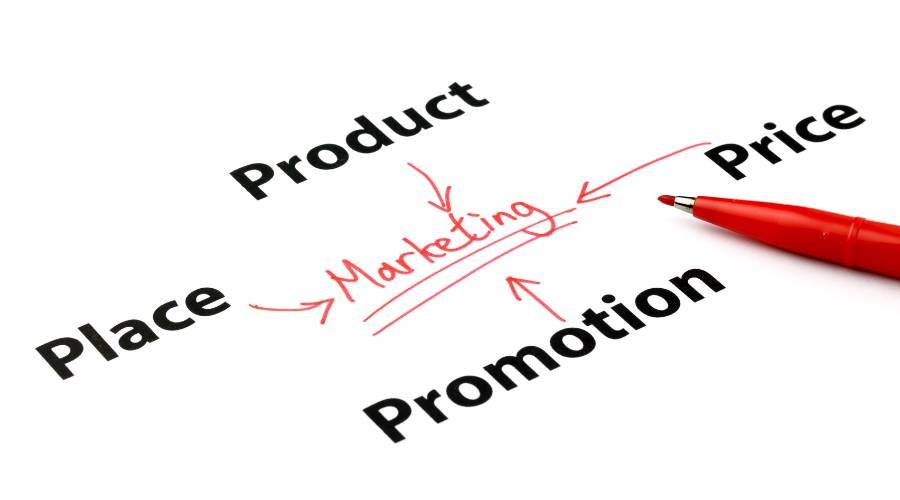Australia’s digital marketing landscape is evolving rapidly, with businesses across all sectors competing for the attention of a tech-savvy population. From bustling urban centres to regional markets, brands are leveraging advanced tools and platforms to connect with audiences who demand relevant, timely, and engaging content.
Industry marketing in Australia is no longer a one-size-fits-all approach. Each sector—from automotive to education and government—faces unique challenges and opportunities. For instance, adopting innovative print marketing strategies has become essential for the printing industry to captivate audiences in the digital age. Similarly, the Brisbane ecommerce industry is booming, presenting a wealth of opportunities for businesses willing to adapt to online market trends.
Tailoring digital marketing strategies to specific industries has become crucial for achieving measurable growth and standing out in a saturated marketplace.
Why industry-specific strategies matter:
- Consumer behaviour differs widely across industries.
- Local market dynamics and regulations can impact campaign success.
- Personalised tactics drive better engagement and higher conversion rates.
For example, in the food industry, implementing effective digital marketing strategies such as SEO and mobile optimization can significantly boost online presence and sales. On the other hand, unique hotel branding strategies can enhance guest experience and create standout identities that attract travelers.
To succeed in the competitive Australian market, businesses must adopt data-driven, tailored digital solutions that resonate with their audience and reflect industry nuances.
This article explores the current state of digital marketing in Australia, highlights the latest trends influencing industry marketing strategies, and provides actionable insights into developing effective digital marketing strategies across key Australian sectors. Whether you’re a start-up or an established business, understanding these approaches can be the catalyst for your next phase of growth.

The Current State of Digital Marketing in Australia
The digital marketing landscape in Australia is experiencing substantial growth, with market size projections indicating an increase from USD 13.03 billion in 2024 to USD 25.39 billion by 2034. This surge reflects the increasing adoption of digital strategies by businesses seeking to enhance their online presence and engage more effectively with their target audience.
Key Statistics:
- Active Social Media Users: Australia has 20.8 million active social media users, showing that a large part of the population is actively using various platforms.
- Popular Platforms: Facebook remains one of the most influential social media channels, where businesses leverage its extensive reach and advertising capabilities to connect with consumers.
Social media’s impact on digital marketing efforts is profound. Platforms like Facebook enable businesses to craft targeted campaigns that cater specifically to their audience’s preferences and behaviors. This personalization is crucial for driving engagement and conversion rates, ensuring marketing efforts are both efficient and effective.
In specific sectors such as hospitality, hotel reputation management becomes vital. The continual growth in market size underscores the need for businesses to stay ahead of trends and adopt innovative strategies tailored to their industry needs. By understanding these dynamics, companies can strategically position themselves to capitalize on opportunities within Australia’s competitive digital marketing space.
Key Trends Shaping Industry Marketing Strategies in Australia
1. The Rise of Artificial Intelligence (AI)
Artificial Intelligence (AI) is redefining digital marketing in Australia by enabling brands to unlock deeper insights into consumer behaviour. Machine learning models now process vast data sets to anticipate preferences, predict purchase intent, and automate the delivery of personalized marketing campaigns.
How Different Industries Are Using AI
Retailers, for example, use AI-driven product recommendations and dynamic pricing strategies that adapt in real time. Service-based businesses leverage chatbots and predictive analytics for tailored customer interactions, drastically increasing conversion rates while reducing manual workloads.
The Broader Impact of AI
This transformation is not limited to retail or service sectors; AI’s role in industry marketing growth is being felt across various sectors.
2. The Shift Towards Video-First Social Media Marketing
Social media marketing Australia continues to pivot towards video-first platforms. The explosive growth of short-form content on TikTok, Instagram Reels, and YouTube Shorts has shifted the way brands approach niche audience engagement.
How Brands Are Adapting
Businesses are producing bite-sized videos that capture attention within seconds, showcasing products, sharing testimonials, or offering quick tips relevant to their target market.
The Benefits of Short-Form Video Ads
Short-form video ads—including stories and interactive features—are delivering measurable ROI for both large enterprises and SMEs.
Driving Organic Reach with Trends
Leveraging trending audio, hashtags, and challenges drives organic reach far beyond traditional static posts.
Staying ahead means mastering these formats to build vibrant communities and spark conversations around your brand. Brands that excel here achieve higher engagement rates and foster authentic connections with new customer segments.
3. AI’s Impact on Specialized Industries
Moreover, the impact of AI extends beyond conventional marketing realms into specialized industries such as legal and beauty.
Legal Industry Transformation
In the legal industry, AI is revolutionizing law practice by enabling automation and enhancing decision-making for lawyers worldwide.
Boosting E-Commerce Sales in the Beauty Sector
Meanwhile, in the beauty sector, AI is predicted to boost e-commerce sales up 40% by enhancing marketing & personalization efforts.
4. Enhancing Customer Engagement for Restaurants
For businesses like restaurants that rely heavily on customer engagement, exploring effective email marketing strategies can significantly enhance customer loyalty and promotional success.
Industry-Specific Digital Marketing Strategies Across Key Sectors
Automotive Industry Marketing Tactics
Australia’s automotive sector is highly competitive, making digital innovation a necessity for brands and dealerships to stand out. Harnessing automotive digital marketing Australia strategies drives targeted visibility, attracts motivated local buyers, and fosters long-term brand loyalty.
Targeted Advertising Strategies for Local Buyers
Precision advertising is essential in the automotive realm. Pay-Per-Click (PPC) campaigns allow dealerships and auto brands to zero in on potential customers within specific postcodes or regions.
- Geo-targeted PPC Campaigns
- Example: A Brisbane dealership can allocate ad budgets specifically toward users searching for “new cars near me” or “Brisbane car dealership,” ensuring that clicks are genuinely relevant.
- Benefits include:
- Reduced wasted spend on irrelevant clicks.
- Increased foot traffic to showrooms from users already in the buying mindset.
- Enhanced visibility during local car sales events or model launches.
Leveraging data-driven insights, businesses can retarget website visitors who viewed vehicle listings but did not make an enquiry. Dynamic ads showing previously viewed models or highlighting limited-time offers can efficiently nurture these leads back through the sales funnel.
Interactive Websites and Video Content
Modern consumers expect rich, immersive online experiences before setting foot in a physical showroom. Automotive brands are elevating their websites with interactive elements that drive engagement and influence purchasing decisions.
- Virtual Showrooms & 360° Vehicle Tours
- Interactive galleries, virtual test drives, and 360-degree tours let buyers explore features, colours, and trims from any device. This approach builds excitement and confidence, especially valuable for new model launches or when physical visits are impractical.
- Video Walkthroughs & Live Demonstrations
- Short-form video content is particularly effective at showcasing vehicles’ unique selling points, safety features, or infotainment systems.
- Example: Instagram Reels featuring new arrivals or Facebook Live Q&A sessions with product specialists create real-time engagement while highlighting inventory.
- These videos also support search engine optimisation (SEO), as platforms like Google increasingly favour video-rich pages in local search results.
Automotive digital marketing Australia is also seeing increased use of chatbots for instant customer queries, integrated finance calculators, and lead capture forms—all designed to streamline the buyer journey from first click to test drive booking.
Digital-first strategies tailored to the automotive industry’s nuances help dealers build authority, foster trust among local audiences, and convert web visitors into lifelong customers.
Retail Industry Marketing Tactics
Similar to the automotive sector, the retail industry also requires a robust digital marketing strategy to thrive in a competitive landscape. Brands must enhance their online presence while maintaining a strong physical footprint. One way to achieve this is through effective retail store branding that creates immersive shopping experiences, which boost loyalty and sales.
Education Sector Digital Outreach
Educational institutions across Australia are using digital marketing to attract, engage, and convert prospective students in an increasingly competitive environment. With “education digital marketing Australia” becoming a top priority, schools, universities, and training providers are implementing customized strategies for measurable results.
SEO-Driven Content for Course Promotion
SEO-driven content is crucial for promoting courses. By conducting keyword research aligned with specific programs or areas of study, institutions can ensure their website appears prominently when students search for courses such as “business analytics in Brisbane” or “online nursing degrees Australia.” Here are some effective SEO tactics:
- Optimizing program pages with detailed, relevant content and clear calls-to-action
- Publishing student testimonials and graduate success stories to boost authority
- Creating resource-rich blog content that answers common student queries
Social Media Campaigns for Targeting Prospective Enrolments
Social media campaigns are also highly effective for targeting prospective enrolments. Platforms like Facebook and Instagram allow for precise advertising based on age, interests, location, and even previous engagement with similar educational offerings. Here are some examples of potential campaigns:
- Carousel ads showcasing diverse course options or campus facilities
- Video testimonials from current students or alumni
- Interactive stories featuring Q&A sessions with faculty members
This approach in the education sector is similar to trends seen in BFSI digital marketing in Australia and healthcare sector marketing, where trust-building content and tailored messaging drive conversion. As industry marketing g Australia continues to evolve, education providers who invest in data-driven tactics consistently capture attention in crowded online spaces.
Government Sector Digital Engagement
Transparency Through Online Platforms
Government agencies can use websites and social media channels to effectively communicate important information to citizens. By keeping their online presence up-to-date, they make sure that residents have access to crucial information and services. For example, emergency announcements, policy changes, and public service updates can be quickly shared through these digital platforms. Additionally, interactive features like live chats and forums can promote direct communication between the government and the public, building trust and encouraging participation.
Public Awareness Campaigns Using Social Networks
Social media is a powerful tool for raising awareness about public service initiatives and encouraging community involvement. Platforms such as Facebook, Twitter, and Instagram are essential for government bodies in creating targeted campaigns that reach different demographic groups. For instance, health departments can effectively use social networks to promote vaccination drives or health awareness programs. These campaigns not only provide information but also motivate the community to actively participate.
- Utilizing social media analytics helps in understanding the impact of these initiatives and improving strategies for better outreach.
- Incorporating AI-driven personalization techniques can further enhance these efforts by tailoring messages to specific audiences based on their interests and behaviors, ensuring higher engagement rates.
- Combining these strategies with robust SEO practices ensures that government digital content is easily discoverable by the public, increasing visibility and accessibility.
Moreover, sectors such as restaurants that have successfully used creative content ideas to boost engagement can offer valuable insights for government agencies as well. These innovative strategies for online content could be adapted to improve the effectiveness of government digital engagement efforts.
Overcoming Challenges Faced by Small Businesses in Industry Marketing
Limited Resources and Budget Constraints
Small businesses often struggle with limited resources and budget constraints, making it challenging to compete with larger companies. However, optimizing their online presence can be achieved cost-effectively through:
- Cost-Effective SEO Strategies: Implementing fundamental SEO techniques such as keyword research, local SEO, and on-page optimization can significantly enhance visibility without substantial investment.
- Utilizing Free Tools: Leveraging free digital marketing tools like Google Analytics and social media scheduling apps can help manage campaigns efficiently.
Lack of Digital Marketing Expertise
The lack of digital marketing expertise is a common hurdle for small businesses. Seeking professional assistance from experienced agencies like Small Biz Optimize can bridge these knowledge gaps and maximize results. Benefits include:
- Expert Guidance: Professional agencies provide tailored strategies that align with business goals, ensuring effective marketing efforts.
- Advanced Techniques: Access to advanced tools and techniques that may be beyond the reach of small business owners without specialized knowledge.
Additionally, implementing a robust content strategy can further enhance brand awareness, boost SEO, and drive conversions. By addressing these challenges, small businesses in Australia can improve their digital marketing effectiveness, ensuring sustainable growth and competitive advantage.

Essential Digital Marketing Services for Industry Success in Australia
Securing a dominant online presence requires a tailored approach to SEO services Australia-wide. Results-driven industry marketing in Australia hinges on:
1. Comprehensive SEO Campaigns
- Industry-specific keyword research to discover high-intent terms your audience is actively searching.
- On-page optimisation—from meta tags to mobile usability—to ensure your website outranks competitors.
- Strategic link building that earns quality backlinks from relevant, authoritative sources.
For instance, restaurant businesses can leverage specific SEO strategies to improve Google rankings and attract more local diners effectively. Similarly, hotel businesses can unlock effective SEO strategies to boost visibility, attract guests, and increase bookings.
2. Content Marketing with Storytelling
- Crafting blog posts and case studies using storytelling techniques to connect emotionally with readers and build brand loyalty.
- Sharing authentic brand narratives across social media, email, and websites to drive engagement and foster trust within your target market.
For instance, mastering restaurant branding can help create cohesive menus that enhance customer loyalty and deliver memorable experiences.
Businesses leveraging these digital marketing essentials are positioned to attract, engage, and convert industry-specific audiences, solidifying their authority across Australia’s competitive landscape.
FAQs (Frequently Asked Questions)
What is the current size and growth projection of the digital marketing market in Australia?
The digital marketing market in Australia is projected to grow from USD 13.03 billion in 2024 to USD 25.39 billion by 2034, reflecting significant expansion opportunities for businesses leveraging digital strategies.
How is Artificial Intelligence (AI) transforming digital marketing strategies in Australia?
AI is revolutionizing industry-specific digital marketing in Australia by enabling businesses to analyze consumer behavior deeply and deliver highly personalized campaigns at scale, enhancing customer engagement and campaign effectiveness.
What are effective digital marketing tactics for the automotive industry in Australia?
Key tactics include targeted Pay-Per-Click (PPC) advertising aimed at local buyers to maximize relevance, alongside interactive websites and immersive video content that showcase vehicles and improve user engagement on automotive platforms.
How can educational institutions in Australia leverage digital marketing to attract prospective students?
Educational institutions can optimize their website content using SEO-driven strategies to promote courses effectively and run targeted social media campaigns, particularly on Facebook, to reach individuals interested in enrolling.
What digital marketing challenges do small businesses face in Australia, and how can they overcome them?
Small businesses often struggle with limited resources, budget constraints, and a lack of digital marketing expertise. They can overcome these by implementing cost-effective SEO strategies and seeking professional assistance from experienced agencies like Small Biz Optimize to maximize results.
Why is content marketing important across various industries in Australia’s digital landscape?
Content marketing, especially when combined with storytelling techniques, helps businesses create engaging blog posts and online materials that resonate with target audiences, build trust, improve SEO rankings, and drive sustained customer engagement across multiple platforms.



